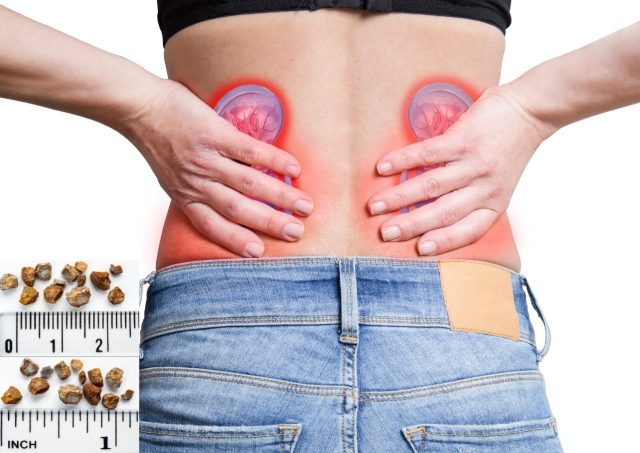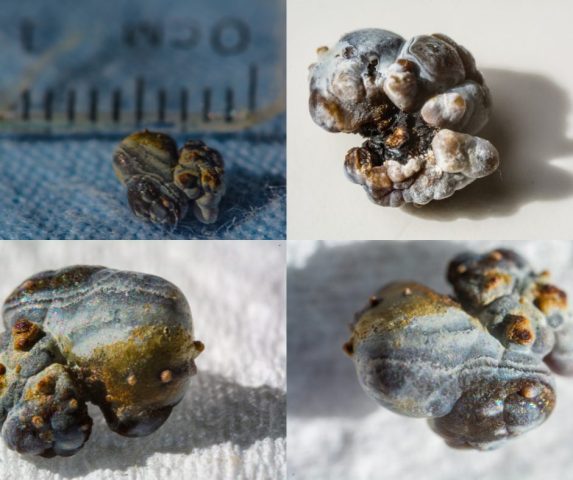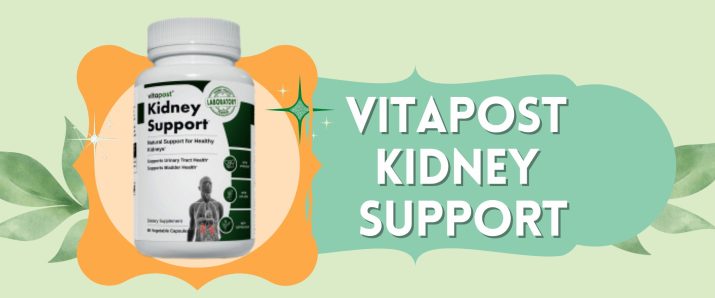How to Prevent Kidney Stones: Complete Guide 2024
By Vanessa Richards
January 10, 2024 • Fact checked by Dumb Little Man

Do you know that one in ten people will experience kidney stones at some point in their lifetime? The kidneys are little but mighty bean-shaped organs that perform several vital functions.
Talk about urine production, maintenance of blood pressure through specific hormones, waste filtration out of bodily fluids, and other vital functions, your kidneys do all these for you.
You probably have given little concern to your kidney health unless you've personally dealt with the agony of kidney stones. Nevertheless, it is believed that 31 million Americans have a chronic renal disease (CKD).
More concerning is that 90% of people with somewhat reduced renal function are unaware of it! The fact that most people don't experience symptoms until the disease has progressed to an advanced stage is one reason kidney stone isn't on their radar.
Without exaggeration, it's pertinent you know what kidney stones are and how to avoid them. Here you go!
How to Prevent Kidney Stones: What are Kidney Stones?

Kidney stones are a solid mass that forms due to the buildup of compromising minerals and salts within the kidneys. The minerals crystallize and stick together in concentrated urine, which frequently results in stones.
They are also referred to as nephrolithiasis, renal calculi, or urolithiasis.
Symptoms of Kidney Stones
Symptoms typically do not appear until a kidney stone shift or enter one of the ureters (connective tubes between the kidneys and bladder). The movement of the stones might be pretty painful, but it doesn't cause much damage if the condition isn't major and is discovered and treated early.
| Signs and Symptoms |
|---|
| Excruciating, stabbing pain in the lower region of the ribcage |
| Aches and pains in the groin and lower abdomen. The pain is intermittent and varies in severity |
| A scorching or uncomfortable feeling while urinating |
| Reddish, pinky, or brownish urine |
| Cloudy or stinking urine |
| A frequent urge to urinate |
| Vomiting and nausea |
| Fever and chills |
As the kidney stone passes through your urinary path, the pain it causes may alter, such as moving to a different spot or becoming more intense.
Types of Kidney Stones
Calcium phosphate stones
This is another type of calcium stone that can develop. You'd mostly find such stones in metabolic disorders like Renal Tubular Acidosis.
Calcium oxalate stones
These stones typically take the form of calcium oxalate. They make up the majority of kidney stones. Your liver produces oxalate daily and can also get it from food.
The oxalate level of some fruits, vegetables, nuts, and foods like chocolate is high. Excess vitamin D and some metabolic diseases can also form calcium oxalate stones.
Struvite stones
Struvite stones can be formed by urinary tract infections. Sometimes, even when there aren't many signs or warnings, these stones overgrow in no time and get very big.
Uric acid stones
Patients with a high protein diet, those with metabolic syndrome and chronic diarrhea, diabetics, and those that experience a more significant loss of body fluid all stand a chance of developing uric acid stones. Particular genetic variables also serve as contributing factors in increasing the probability of building up uric acid stones.
Cystine stones
People with cystinuria, a genetic disorder in which the kidneys release too much of particular amino acid, can get these stones.
Risk Factors of Kidney Stones
Both sexes can get kidney stones, although males are nearly twice as likely as women. Finding the precise etiology of a kidney stone might be difficult.
However, it happens when your urine has a high concentration of a specific mineral. These include:
- Vitamin D
- Oxalate
- Uric acid
Your risk of having kidney stones increases with the following factors:
Personal or family history
You are prone to have kidney stones if a member of your family has had them. Also, if you've once experienced the condition, your chances of developing recurrent stones increase.
Hydration loss
Low water intake increases the risk of kidney stones showing up. Those who live in hot, arid regions and release large amounts of sweat could be at higher risk.
Specific diets
Protein, and high sodium intake, which is often from salt and sugar-heavy diets may make your kidney prone to developing kidney stones. High sodium levels also make the kidneys filter more calcium, thus boosting the risk for the condition.
Overweight
Researchers associated a high body mass index (BMI) with a heightened risk of kidney stones.
Some health problems, like cystinuria, hyperparathyroidism, renal tubular acidosis, digestive and kidney diseases, and recurrent UTIs, can also make you more likely to get kidney stones.
Some dietary supplements and prescribed medications can be risky. These include ascorbic acid (vitamin c), some over-the-counter medications, and prescribed drugs. For example, antacids, certain antibiotics, decongestants, laxatives (when used excessively); calcium-based antacids; diuretics, steroids, and some cancer, HIV, and epilepsy treatments, can cause kidney stones.
Complications of Kidney Stones

A kidney stone can range in size from a sand grain to a pearl or even more. They might be smooth or jagged and are commonly yellow or brown.
Kidney stones can have significant medical repercussions in addition to their typical symptoms of pain, nausea, and blood in the urine. These consist of:
- Severe infections include the potentially fatal blood poisoning condition known as septicemia.
- Irreversible renal failure as a result of kidney injury and scarring.
- Complete loss of kidney function necessitates kidney removal (nephrectomy).
Large kidney stones that manage to pass through the urethra and into the bladder but become lodged there might cause an obstruction that causes uncomfortable urine retention.
How to Prevent Kidney Stone Formation
There isn't a single foolproof way to prevent kidney stones, especially if the condition runs in your family. However, the under-listed points are ways to avoid kidney stone formation for those who have never experienced it at a time or more.
Natural Remedies
1. Remain hydrated
Increasing your water intake is the easiest way to steer clear of kidney stones. You won't make as much urine if you don't drink enough. Your urine becomes less dilute and less probable to dissolve urine salts that can form stones if you produce less or dark-colored urine.
Tea, coffee, and orange juice can all count toward your daily fluid requirements, but water is the healthiest choice and the most excellent way to prevent kidney stones from forming.
Ensure your fluid intake exceeds two liters of urine, or roughly eight glasses each day. You'll need more fluids if you move around a lot, sweat, or have cystine stones. Never watch low urine output persist for too long.
2. Increase your intake of calcium-rich foods
Fear of future kidney stones for people who have a time had the experience makes some reduce their calcium intake. However, you increase of coming up with kidney stones when your diet is poor in calcium content.
Don't reduce the calcium. You can cut down on the sodium in your diet and replace them with calcium-rich foods.
However, avoid taking calcium supplements as they may lead to kidney stones. Excellent sources of calcium are low-fat milk and cheese, and yogurt.
3. Limit your salt intake
Table salt contains a high amount of sodium that boosts urine calcium level and can trigger kidney stone formation. Thus, a low-sodium diet is preferable for those with proclivities toward kidney stones.
Research has shown that 2300mg of sodium daily is enough. If you once had issues with kidney stones, a maximum of 1500mg will do. Additionally, this is beneficial for your heart and blood pressure.
Reading food labels while attempting to follow a low-sodium diet is crucial.
Avoid canned, frozen, and processed foods: crackers, pretzels, chips, and other prepared meals. Cheese, condiments, pickles, olives, bratwurst, and hot dogs are foods that include chemicals like sodium nitrate, sodium bicarbonate, and monosodium glutamate.
4. Consume fewer oxalate-heavy meals
Oxalate is absorbed into the bloodstream and subsequently eliminated by the kidney in smaller amounts when dietary calcium binds to it in the intestines. The likelihood of oxalate attaching to the calcium in the urine is reduced. As a result, the possibility of kidney stones is diminished.
5. Cut down animal protein
If you are prone to stones, limit your daily meat intake to no more than a pack of playing cards. Consuming excessive amounts of animal protein increases the concentration of uric acid and the risk of forming kidney stones.
A protein-heavy diet also helps in urinary citrate concentration, a chemical in the urine that contributes effectively to the prevention of stone formation.
Medications
For some people, changing what they eat might not be sufficient to prevent the formation of kidney stones. Various medications are available for treating different types of kidney stones that can aid in lowering the level of the substance in urine that causes the stone.
Certain drugs can help limit the amount of that material in your urine if you are prone to specific kidney stones. Your typical stone kind will determine the type of medication that is provided.
For instance, a thiazide diuretic or phosphate may be helpful if you develop calcium stones. Allopurinol (Zyloprim) can help lower uric acid levels in your blood or urine if you develop uric acid stones.
If you have struvite stones, you may need to take antibiotics for a long time to eliminate the bacteria in your urine. Capoten (captopril) may help lower the amount of cystine in your urine if you have cystine stones.
Herbal remedies
Several herbal supplements are sometimes referred to as the “stone buster.” They may aid in preventing calcium-oxalate stones from developing.
We also thought it to reduce the size of already-existing stones. Exercise caution when using herbal therapies.
Only a few have been studied or tested enough to be used to prevent kidney stones or cure recurrent stones.
>>Related Article: Turmeric for Kidney Health: Here’s What You Should Know
Supplements
Most people eat various meals daily to get the right amount of nutrients. Kidney disease can also affect how your body uses some nutrients, so supplements may help you get all the nutrients you require.
There are many supplements, but some are explicitly intended for kidney failure, diabetes, or chronic kidney disease.
Organic Supplement That Boosts Kidney Health: VitaPost Kidney Support

VitaPost Kidney Support is a reputable supplier's certified organic and secure nutritional supplements. This antioxidant-rich supplement contains super-healthy flavonoids and phenols that keep your kidneys in tip-top shape.
It's an exceptional nutrient supplement with original herbal extracts and highly nourishing nutrients and is suitable for one's health.
Kidney Support is a synergetic combination of herbal and scientific components to strengthen the kidneys. This health supplement's certified organic formula contains a robust blend of botanical extracts, rare herbs, highly effective and nourishing flavonoids, phenols, and antioxidants.
In addition to nourishing your kidneys, the solid herbal constituents in this herbal blend guard against bacterial infections throughout the entire urinary system. A number of the ingredients in VitaPost Kidney Support, including astragalus, rutin, and juniper, have demonstrated potential for improving kidney function.
The protection of the kidneys from oxidative injury is made possible by antioxidants. This five-star rated product is a natural health supplement for overall kidney, bladder, and urinary tract nourishment.
This nutritional supplement is a high-quality formulation with a potent blend of numerous herbs, root extracts, and other essential fruit extracts to support your complete renal system.
Shop VitaPost Kidney Support at the Official Website.
Full Article: Vitapost Kidney Support Review: Does it Really Work?
Conclusion
Kidney stones are rather typical. Although there is no assurance that prevention measures will be effective, they might lower your risk. Staying hydrated and being sure to combine high fluid intake with avoiding urinary infections and particular prescription therapy can considerably minimize or stop new stone formation.
VitaPost Kidney Support is your best bet for preventing kidney stones. On the other hand, if you have a health problem, like inflammatory bowel disease or a persistent urinary tract infection, that makes you more likely to get kidney stones, talk to your doctor about ways to lower your risk.
Click Here to Get VitaPost Kidney Support at Discounted Price.
>> Related Article: 3 Ways to Prevent Kidney Pain: Complete Guide 2024
Kidney Stones FAQs
What is the leading cause of getting kidney stones?
High fructose consumption has been linked to kidney stone formation. Insufficient hydration and activity, salt and sugar-heavy diets, weight loss surgery, obesity, and family history are other important contributing risk factors to obesity.
Which foods cause kidney stones?
Oxalate is a compound that can cause kidney stones and is present in foods like beets, cocoa, spinach, rhubarb, tea, and nuts. Your doctor might suggest you avoid these foods or eat modest amounts if you have kidney stones.
What food helps kidney stones?
Adopt a nutritious diet that's whole grains, vegetables, low-fat dairy products, and fruit. Stay away from high fructose corn syrup-sweetened foods and beverages at all costs.
Also cut down on alcohol consumption as it raises blood uric acid levels. Stay away from quick fixes like diets.
What can reduce kidney stones?
The most accessible approach to avoiding kidney stones is ensuring you have enough water daily to stay hydrated.
Vanessa Richards
Vanessa is a mom of 3 lovely children and a software geek. Outside of her career as a health and wellness instructor. She enjoys writing and researching on topics such as finance, software, health and culinary.


